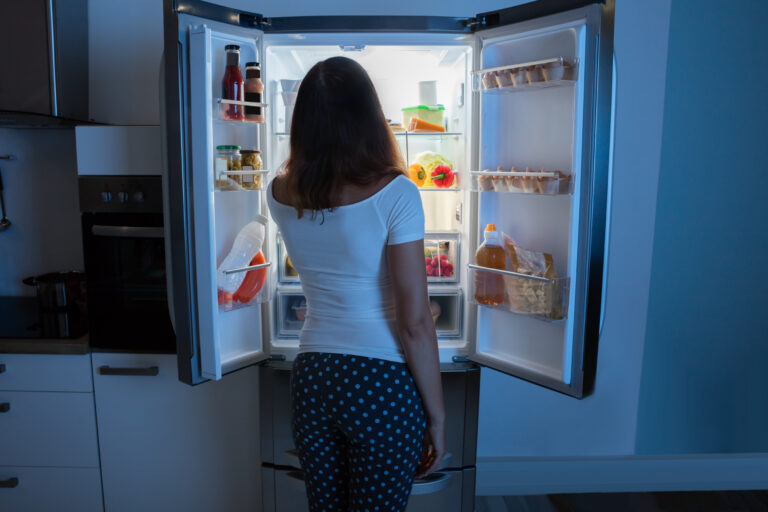Anorexia can be challenging, and becomes even more difficult when another mental disorder like anxiety is present. Anxiety is one of the most common mental health diagnosis to occur with anorexia, and anxiety is the most prevalent mental illness in the U.S. today.
How are anxiety and anorexia connected?
Two-thirds of individuals with anorexia also show signs of anxiety years before their eating disorder symptoms are present, demonstrating the contributing role anxiety plays in anorexia. For those struggling with anxiety, they can gain a false sense of control using food, weight, and exercise. In doing so, this false belief and associated behaviors can lead to an eating disorder, and often linger after recovery.
Research has suggested that anxiety contributes to the development of anorexia, instead of merely a symptom. Conversely, other studies suggest those who have an eating disorder also have abnormal activity levels of serotonin in the brain, leading to anxiety. No matter what research is presented, both show anxiety and anorexia being interwoven in many cases.
Regardless of which came first, anorexia easily can couple with anxiety, as an individual constantly worries about calories, food, cooking, body image, etc. Some people use food restriction to cope with anxiety. Those suffering from anorexia will often claim their anxiety is caused by fear of being judged on their body, or what they eat. Individuals with anorexia are vulnerable to negative thoughts, and how others view them. The cycle of anxiety causing an eating disorder, and an eating disorder increasing the levels of anxiety leaves a person feeling they have no escape.
How does Magnolia Creek treat co-occurring disorders?
At Magnolia Creek, we work to address not only a client’s eating disorder but also co-occurring mental health disorders to allow them to live a life of freedom. When treating an individual with an eating disorder and an anxiety disorder, we use evidence-based practices and customize a plan to identify treatment goals and provide the support needed to achieve and maintain recovery. Because we are focusing on the specific needs of each client, no two treatment plans look the same. Our goal when treating a combination of disorders, such as anorexia and anxiety, is to help the client to recognize the anxiety-inducing triggers and eating disordered behaviors, to reduce the unhealthy defense reactions.
Our comprehensive program is strengths-based, incorporating elements of spirituality, mindfulness, nutrition, art, movement/exercise, and psychotherapy. Our treatment team uses modalities such as Cognitive Behavioral Therapy, Dialectical Behavior Therapy, mindfulness-based stress reduction, exposure and response prevention, and adjunct therapies, such as yoga. Clients engage in activities such as art, psychodrama, exercise, movement, and recreational outings to build confidence, challenge distorted thinking, and help them develop effective coping skills.
Our approach engages the client and their family to review treatment plans they have tried in the past, identify successes with past plans, and identify modalities that fit best with their interests and personality style. We combine this knowledge to build on strengths and avoid ineffective strategies. On-going assessment throughout treatment is conducted to analyze the effectiveness of the current interventions being used and adjust them as necessary to strengthen the treatment outcome.
At Magnolia Creek, we specialize in supporting those struggling with eating disorders and co-occurring mental health disorders, such as anxiety. We see firsthand how a comprehensive care plan restores health and how a collaborative treatment environment is essential to recovery. Using an evidence-based treatment model, we work with you to help you fully recover. To learn more about our program, please call us at 205-409-4220 or complete our contact form.




